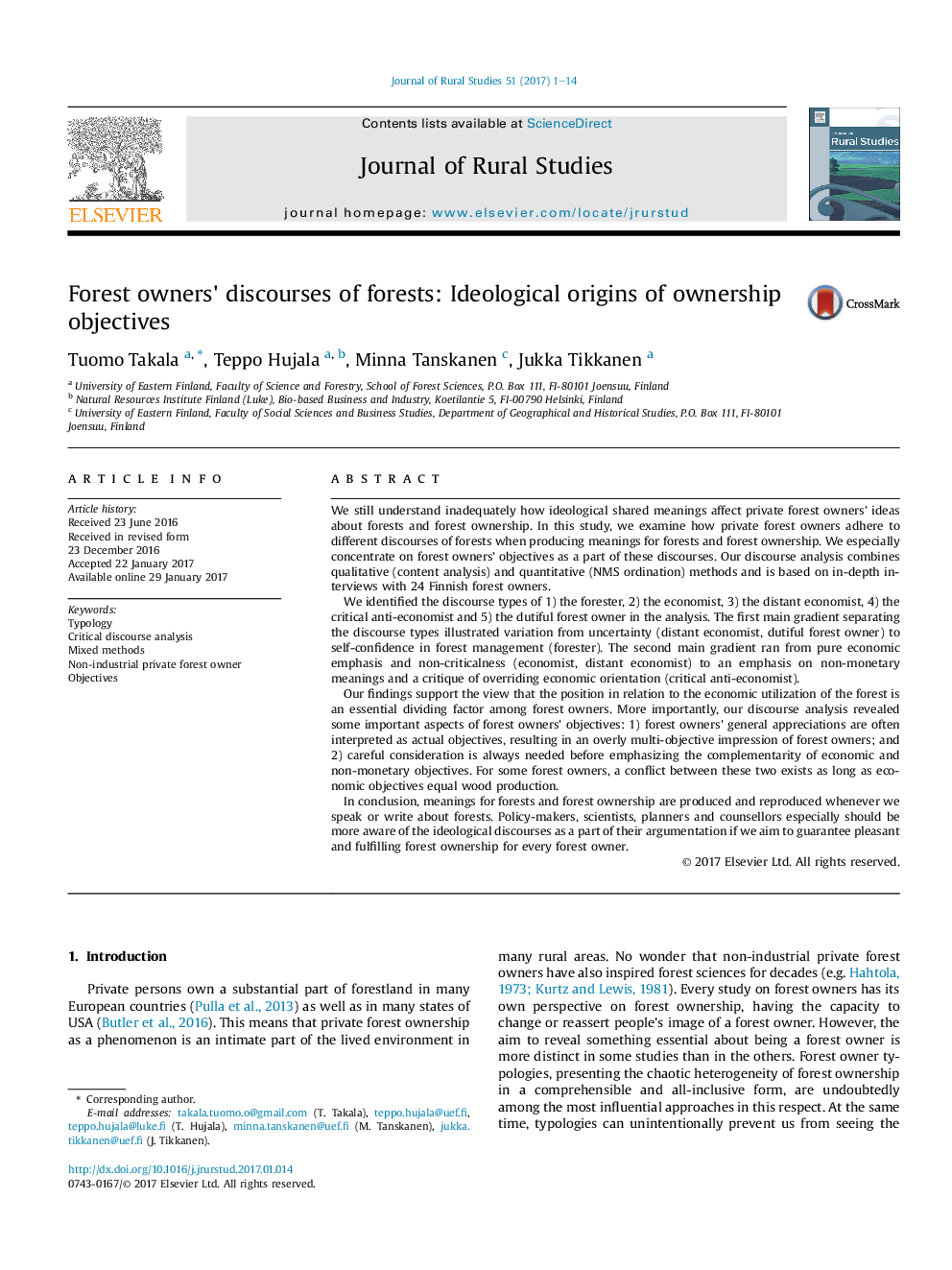| کد مقاله | کد نشریه | سال انتشار | مقاله انگلیسی | نسخه تمام متن |
|---|---|---|---|---|
| 6460113 | 1421780 | 2017 | 14 صفحه PDF | دانلود رایگان |
- Five different forest owners' discourses were identified.
- Stance to economy and self-confidence in forestry produced the main differences.
- Important observations about forest owners' objectives were made.
- Forest owners' multi-objectivity is easily exaggerated.
- Economic and non-monetary objectives are not always complementary.
We still understand inadequately how ideological shared meanings affect private forest owners' ideas about forests and forest ownership. In this study, we examine how private forest owners adhere to different discourses of forests when producing meanings for forests and forest ownership. We especially concentrate on forest owners' objectives as a part of these discourses. Our discourse analysis combines qualitative (content analysis) and quantitative (NMS ordination) methods and is based on in-depth interviews with 24 Finnish forest owners.We identified the discourse types of 1) the forester, 2) the economist, 3) the distant economist, 4) the critical anti-economist and 5) the dutiful forest owner in the analysis. The first main gradient separating the discourse types illustrated variation from uncertainty (distant economist, dutiful forest owner) to self-confidence in forest management (forester). The second main gradient ran from pure economic emphasis and non-criticalness (economist, distant economist) to an emphasis on non-monetary meanings and a critique of overriding economic orientation (critical anti-economist).Our findings support the view that the position in relation to the economic utilization of the forest is an essential dividing factor among forest owners. More importantly, our discourse analysis revealed some important aspects of forest owners' objectives: 1) forest owners' general appreciations are often interpreted as actual objectives, resulting in an overly multi-objective impression of forest owners; and 2) careful consideration is always needed before emphasizing the complementarity of economic and non-monetary objectives. For some forest owners, a conflict between these two exists as long as economic objectives equal wood production.In conclusion, meanings for forests and forest ownership are produced and reproduced whenever we speak or write about forests. Policy-makers, scientists, planners and counsellors especially should be more aware of the ideological discourses as a part of their argumentation if we aim to guarantee pleasant and fulfilling forest ownership for every forest owner.
Journal: Journal of Rural Studies - Volume 51, April 2017, Pages 1-14
